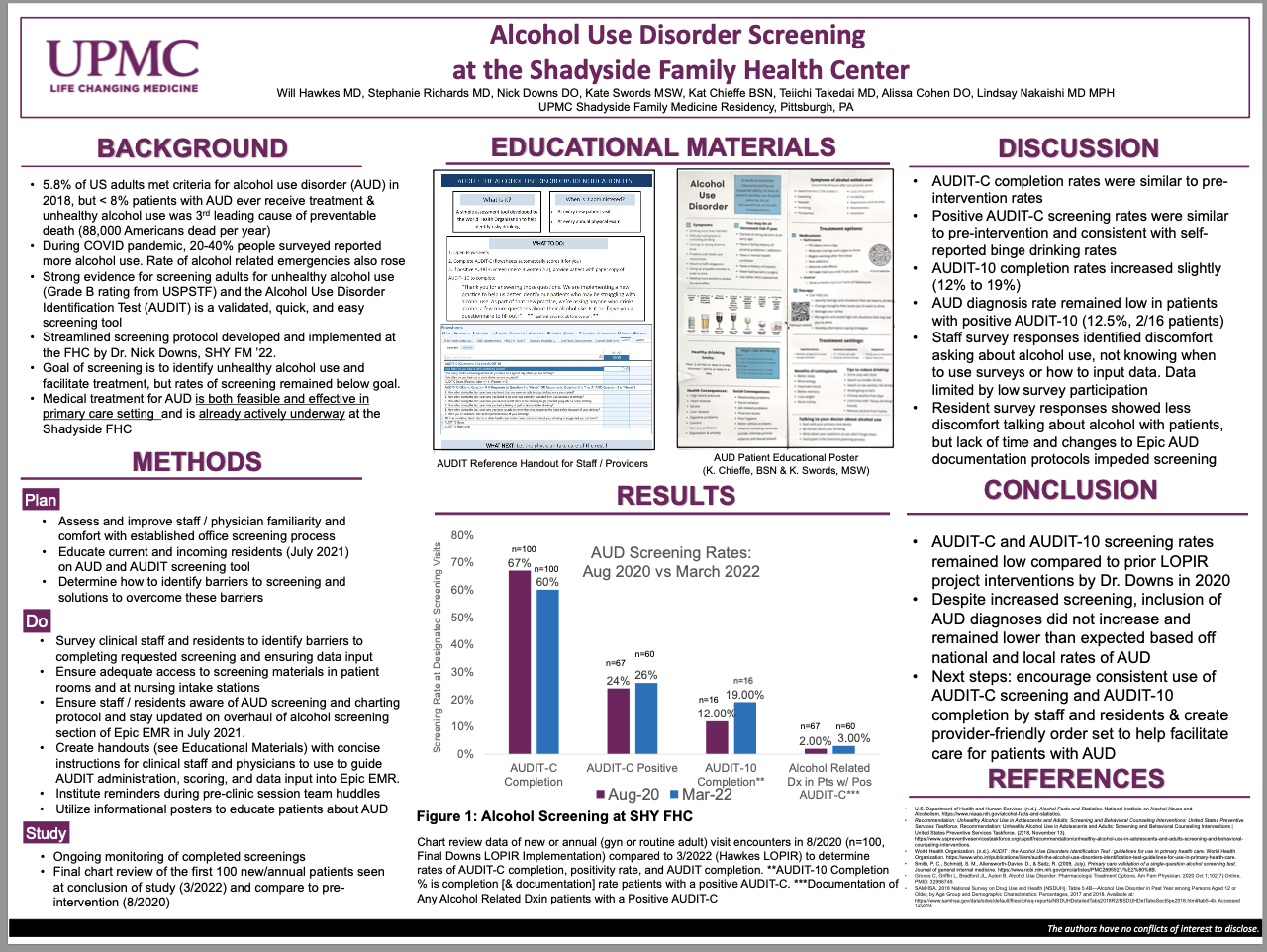Family Practice Physician, Pittsburgh Mercy Family Health Center, Pittsburgh, Pennsylvania
Title: Alcohol Use Disorder Screening At The Shadyside Family Health Center
Authors: William Hawkes, MD; Stephanie Richards, MD
Background:
In 2018, 5.8% of US adults (7.2% of men) met DSM criteria for alcohol use disorder (AUD) and unhealthy alcohol use was the third leading preventable cause of death in the US. Unfortunately, only ~7.9% of adults with AUD ever receive any treatment. The United States Preventive Services Task Force recommends screening for AUD in all adults (Grade B) to identify potentially unhealthy drinking. The Alcohol Use Disorder Identification Test (AUDIT-C and AUDIT-10) is a validated and quick screen to detect unhealthy alcohol use. Despite standardization of the screening protocol at the Shadyside FHC and education of staff and physicians, there was little improvement in screening rates.
Methods:
Surveys of staff and providers in 7/2021 revealed discomfort and unfamiliarity with administering and scoring the AUDIT. Nursing staff were educated on administering the AUDIT-C during an in-service staff meeting in 01/2022. Instructions were posted and verbal reminders given at pre-clinic huddles starting 2/2022. Providers were also educated on using the AUDIT for screening and diagnosing AUD. Charts of 100 consecutive new patient, annual physical, and gyne visits in 3/2022 were reviewed and compared with pre-intervention data.
Results:
AUDIT-C completion and documentation rates went from 67/100 (67%) pre-intervention to 60/100 (60%) post-intervention. For patients with documented AUDIT-C, 16/60 (26.7%) were positive and 3/16 (18.8%) of those had a full AUDIT-10 documented. 2/16 (12.5%) of patients with a positive AUDIT-C received an AUD related diagnosis and 1/16 (6.3%) patient was referred to MAT. Pre- and post-intervention staff surveys were only completed by 3 staff and reported barriers of discomfort asking patients and unfamiliarity with scoring remained.
Conclusion:
AUDIT-C and AUDIT-10 completion rates remained low despite additional education and prompting of staff and providers. Poor response to staff survey hinders identifying barriers to address. Next steps include: firmer guidance on AUDIT-C survey completion by staff; posting educational posters about unhealthy alcohol use and treatment in patient areas; and creation of an EPIC SmartSet to streamline ordering common labs and treatments; ICD-10 diagnostic codes; and referral to our MAT program and community resources.

